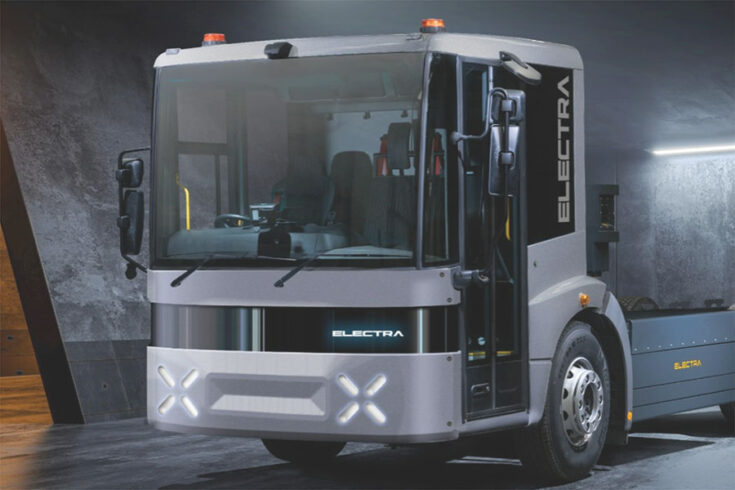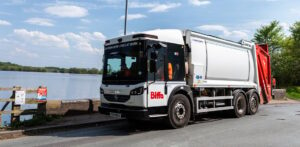Supported through a Horizon Europe guarantee grant, Electra Commercial Vehicles and the University of Surrey will be helping heavy-duty vehicles travel further and more sustainably.
If European countries are to meet their net zero targets, we must reduce emissions from heavy-duty vehicles (HDVs) such as trucks on our roads. But haulage companies and other owners of HDV fleets are sometimes discouraged from moving to cleaner electric vehicles because of current limitations on range. They want their trucks to be able to travel long distances without having to stop to recharge or refuel.
The Horizon Europe ESCALATE project is working to remedy this situation, demonstrating a range of zero-emission electric powertrains for HDVs which can go the distance.
Reader Dr Ahu Ece Hartavi Karci, Interim Head of the Centre of Automotive Engineering at the University of Surrey, assembled the original consortium of universities and vehicle manufacturers involved in ESCALATE. This project is a considerable achievement with 37 different partners from 13 countries.
She explains: ‘We’re piloting five different electric powertrains for trucks and lorries; some use batteries, some use fuel cells, and some combine the two. In all of our pilots, we aim for a range of over 750 km on a single fuel cell or single charge. That’s challenging.’
Another aspect of ESCALATE involves developing the logistics infrastructure for this kind of vehicles. The pilots will include real-world feasibility testing, aiming to demonstrate the possibility of fast charging for electric HDVs or fast refuelling in the case of vehicles using fuel cells, with solutions that work across Europe’s borders.
Logistic intelligence is the final part of the ESCALATE equation. Ahu Ece ordinates the scientific and technical aspects of the whole project. For Ahu Ece, ESCALATE is unique in looking not just at the performance of the vehicles, but at the full range of considerations that might affect a fleet operator’s decision to go electric.
‘At the University of Surrey, we’re contributing expertise in AI-based techniques to show the total cost of ownership for the fleet operators, modelling maintenance requirements across the electric vehicle’s life cycle, and developing AI-based sophisticated energy management tools both for refrigerated and ordinary box trucks. We give fleet operators everything they need to make informed decisions.
Unbroken relationships
Another of the UK partners involved in ESCALATE is Lancashire-based Electra Commercial Vehicles, which makes electric and hydrogen-powered HDVs for the global market. Electra is working with the University of Surrey to create one of the project’s pilot vehicles, a 40-tonne, drawbar-refrigerated vehicle incorporating a new battery system and drive motor.
Electra’s Projects Manager, Steve Storrar, commented: ‘Modularity is an important aspect of the project, both for vehicle components and the recharging/refuelling infrastructure in the UK and Europe. ESCALATE emphasises developing and demonstrating optimum solutions across five different pilot vehicles from various manufacturers – all collaborating to achieve this goal.
Electra’s Consultant Technical Director, Gordon MacDougall, commented: ‘It’s good for us to have exposure to European partners. We’ve participated in various Innovate-funded projects, but they’ve been quite local. ESCALATE means we can work with heavyweight academics on things like computer-generated modelling, which we do not usually have access to. The Horizon Europe guarantee grant means that these relationships remain unbroken.’




